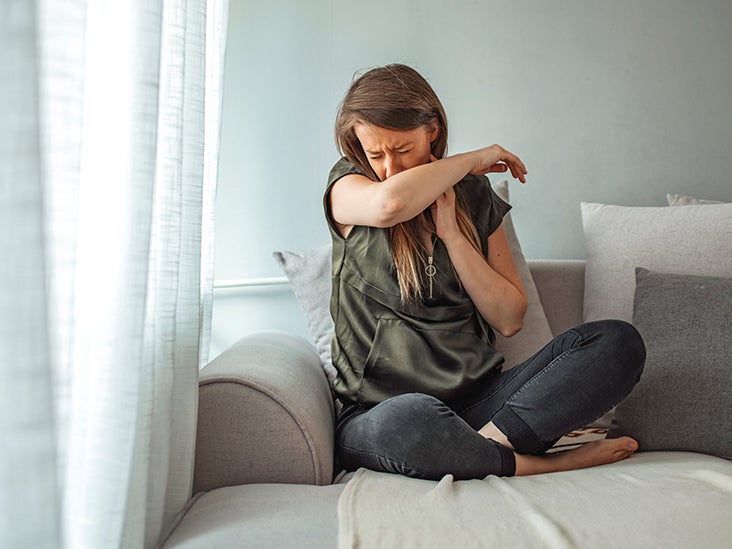What are the early symptoms of coronavirus (COVID-19)? - Medical News Today
What are the early symptoms of coronavirus (COVID-19)? - Medical News Today |
| What are the early symptoms of coronavirus (COVID-19)? - Medical News Today Posted: 06 May 2020 12:00 AM PDT  Severe acute respiratory syndrome coronavirus 2 (SARS-CoV-2) is a viral infection that causes COVID-19. Symptoms can affect the airways and lungs, although this may vary from person to person. The following article outlines the early signs and symptoms of the infection, how to spot them, and what to do if a person experiences symptoms. Once a person has contracted coronavirus, it can take 2–14 days for symptoms to appear. The average incubation period appears to be roughly 5–6 days. According to the World Health Organization (WHO), symptoms of coronavirus can be mild and come on gradually. According to The Lancet, when hospital admission is necessary, this typically occurs from 7 days onwards. The Centers for Disease Control and Prevention (CDC) state that a person with COVID-19 can experience a wide range of symptoms, often including a dry cough and shortness of breath. They may also have a combination of at least two of the following symptoms: According to 2020 research, the prevalence of some of these symptoms appears to be: FeverDoctors consider a temperature of 100.4°F or higher to be a fever. A person with a fever will feel hot to touch on their back or chest. Dry coughA dry cough does not produce mucus. According to the United Kingdom's National Health Service (NHS), if a person notices they are coughing a lot for over an hour, or they have three or more coughing episodes in a day, they may have coronavirus. FatigueFatigue is a feeling of tiredness and an overall lack of energy. A person with fatigue may feel drained, weak, or sluggish. Shortness of breathShortness of breath is a subjective feeling. However, those experiencing shortness of breath may describe it feeling as if they are suffocating, or unable to catch their breath. Other symptoms of COVID-19 may include:
Symptoms of COVID-19 in children and young adults are more likely to be mild. Early symptoms of coronavirus infection in children are similar to those in adults. According to the CDC, early symptoms in children with a coronavirus infection occur in the following percentages: Fever and cough appear to be the common symptoms of COVID-19 that people report in children. Children may also develop additional symptoms, such as:
Children with COVID-19 are likely to recover in 1–2 weeks with no additional issues. Parents and carers with children who are showing signs of a coronavirus infection should contact their health service provider and keep the child at home. The child should also stay away from other people, especially those at higher risk of developing severe illness from coronavirus. People who are experiencing mild COVID-19 will typically be able to recover at home without hospital treatment. However, around 1 in 5 people with a coronavirus infection will become seriously unwell and develop breathing difficulties. Anyone noticing the following symptoms should seek medical attention immediately:
A person with any of these symptoms, or other symptoms that are severe or causing concern, should call 911 immediately. People should also tell the service operator that they think they have contracted coronavirus. If possible, they should put on a cloth face mask or covering before help arrives. If a person notices that they or a child has symptoms of COVID-19, however mild, they should:
A person can learn how to wash their hands properly here. People who have symptoms of coronavirus infection should continue to self-isolate and follow these guidelines for 14 days, even if they begin to feel healthy. If a person is caring for someone with early symptoms of coronavirus infection, they should ensure they follow guidelines to protect themselves and the care receiver. These can include:
The person giving care should make sure they limit contact, as much as possible, with the individual they are caring for. The carer should wear a face mask when near the sick person, and gloves if they come into contact with their blood, stool, or bodily fluids. If the care receiver is trouble breathing easily, they should also always wear a face mask when the carer is nearby. Frequently washing hands thoroughly for 20 seconds with soap and water is critical for the carer. Coronavirus typically spreads via small water droplets that a person with the virus produces when they talk, cough, or sneeze. When another person inhales these droplets, the SARS-CoV-2 virus can enter the body. Droplets in the air can also land on surfaces and objects. People who touch these contaminated surfaces are at risk of infection if they then touch their eyes, nose, or mouth before washing their hands. Some people may transmit the virus despite being asymptomatic. However, researchers do not know how often this may happen. People should follow the guidelines put in place by their local health organizations to ensure they keep themselves and others safe. A person can protect themselves from coronavirus by following the CDC guidelines. They include:
COVID-19 is a highly infectious disease that will usually produce symptoms a person can manage at home. However, it can occasionally cause severe illness. People with a coronavirus infection should ensure they follow guidelines and self-isolate for 14 days from when they become sick. If a person with COVID-19 has trouble breathing, or experiences other concerning symptoms, they should call 911 and seek medical attention. |
| You are subscribed to email updates from "vomiting mucus after eating" - Google News. To stop receiving these emails, you may unsubscribe now. | Email delivery powered by Google |
| Google, 1600 Amphitheatre Parkway, Mountain View, CA 94043, United States | |
Comments
Post a Comment